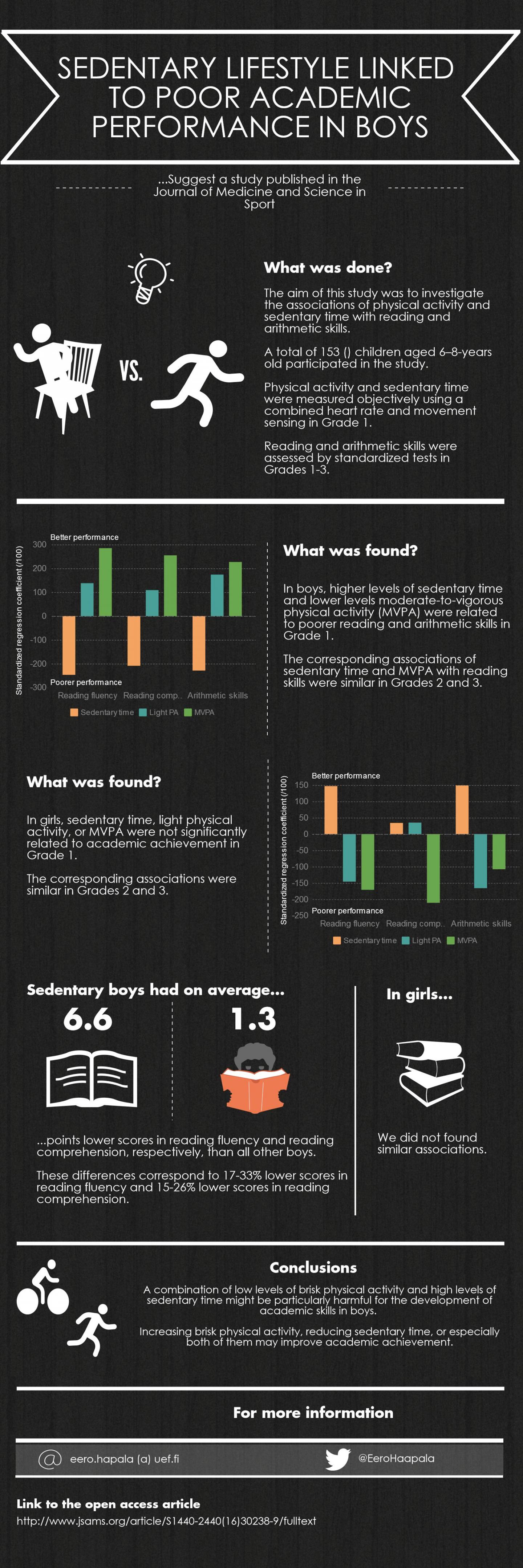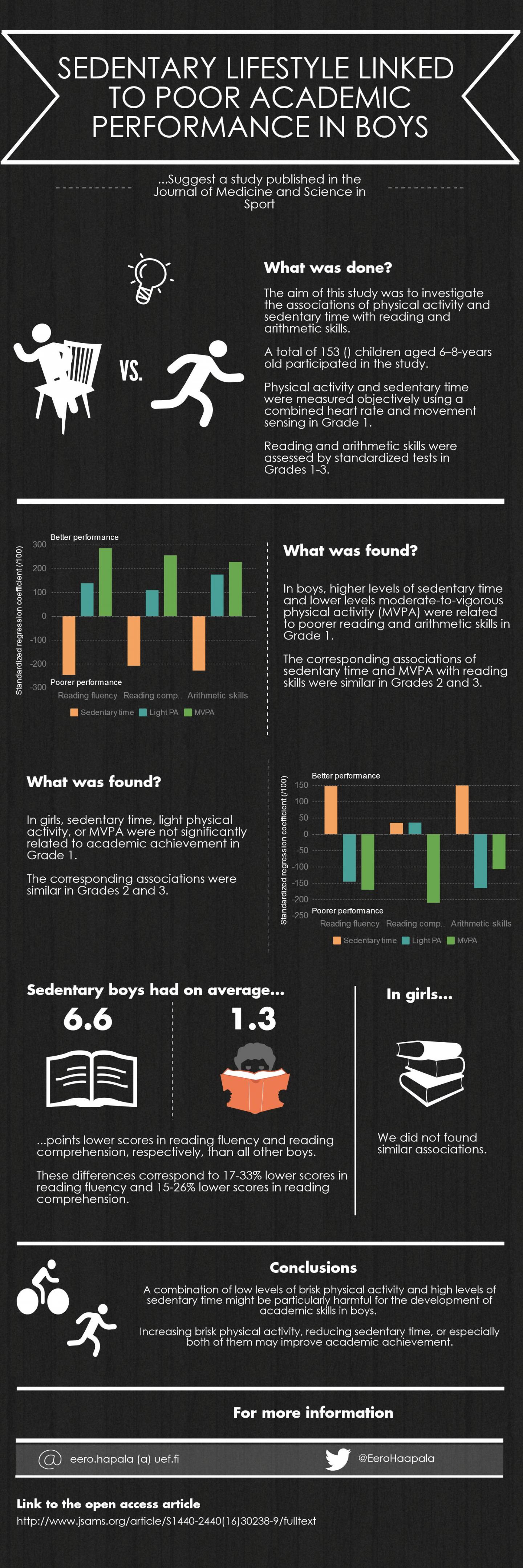
Credit: Eero Haapala
A sedentary lifestyle is linked to poorer reading skills in the first three school years in 6-8 year old boys, according to a new study from Finland. The study conducted at the University of Eastern Finland in collaboration with the University of Jyväskylä and the University of Cambridge was recently published in the Journal of Science and Medicine and Sport.
"Low levels of moderate-to-vigorous physical activity and high levels of sedentary time in Grade 1 were related to better reading skills in Grades 1-3 among boys. We also observed that boys who had a combination of low levels of physical activity and high levels of sedentary time had the poorest reading skills through Grades 1-3," explains Eero Haapala, PhD, from the University of Eastern Finland and the University of Jyväskylä.
The study, constituting part of the Physical Activity and Nutrition in Children Study conducted at the University of Eastern Finland and part of the First Steps Study conducted at the University of Jyväskylä, investigated the longitudinal associations of physical activity and sedentary time with reading and arithmetic skills in 153 children aged 6-8 years old in Grades 1-3 of the primary school. Physical activity and sedentary time were measured objectively using a combined heart rate and movement sensor in Grade 1, and reading and arithmetic skills were assessed by standardised tests in Grades 1-3.
The study showed that high levels of moderate-to-vigorous physical activity, low levels of sedentary time, and particularly their combination in Grade 1 were related to better reading skills in Grades 1-3 in boys. High levels of physical activity and low levels of sedentary time were also associated with better arithmetic skills in Grade 1 only in boys. In girls, there were no strong and consistent associations of physical activity and sedentary time with reading or arithmetic skills.
Promoting physically active lifestyle may kick-start boys' school performance
The results of the study suggest that a combination of low levels of moderate-to-vigorous physical activity and high levels of sedentary time might be particularly harmful for the development of academic skills in boys, and that increasing physical activity, reducing sedentary time, and especially their combination may improve academic achievement.
###
The study was funded by the Jenny and Antti Wihuri Foundation and the Päivikki and Sakari Sohlberg Foundation.
Research article:
Physical activity and sedentary time in relation to academic achievement in children. Haapala, Eero A. et al. Journal of Science and Medicine in Sport, In Press, http://dx.doi.org/10.1016/j.jsams.2016.11.003
Link to the publication (open access) http://www.jsams.org/article/S1440-2440(16)30238-9/fulltext
For further information, please contact:
Eero Haapala, PhD, Institute of Biomedicine / Physiology, University of Eastern Finland / Department of Biology of Physical Activity, University of Jyväskylä tel. 35840-725-4025 | email. eero.haapala (at) uef.fi | twitter: @EeroHaapala
Media Contact
Eero Haapala
[email protected]
358-407-254-025
@UniEastFinland
http://www.uef.fi
############
Story Source: Materials provided by Scienmag




